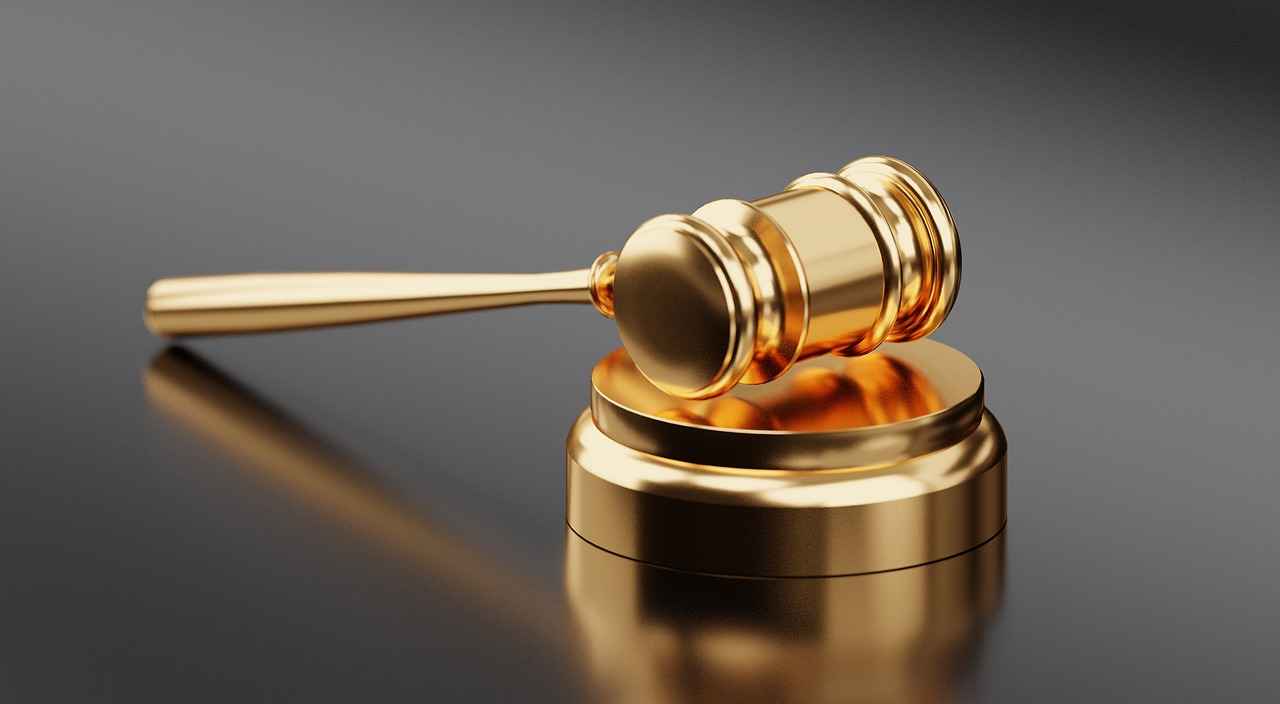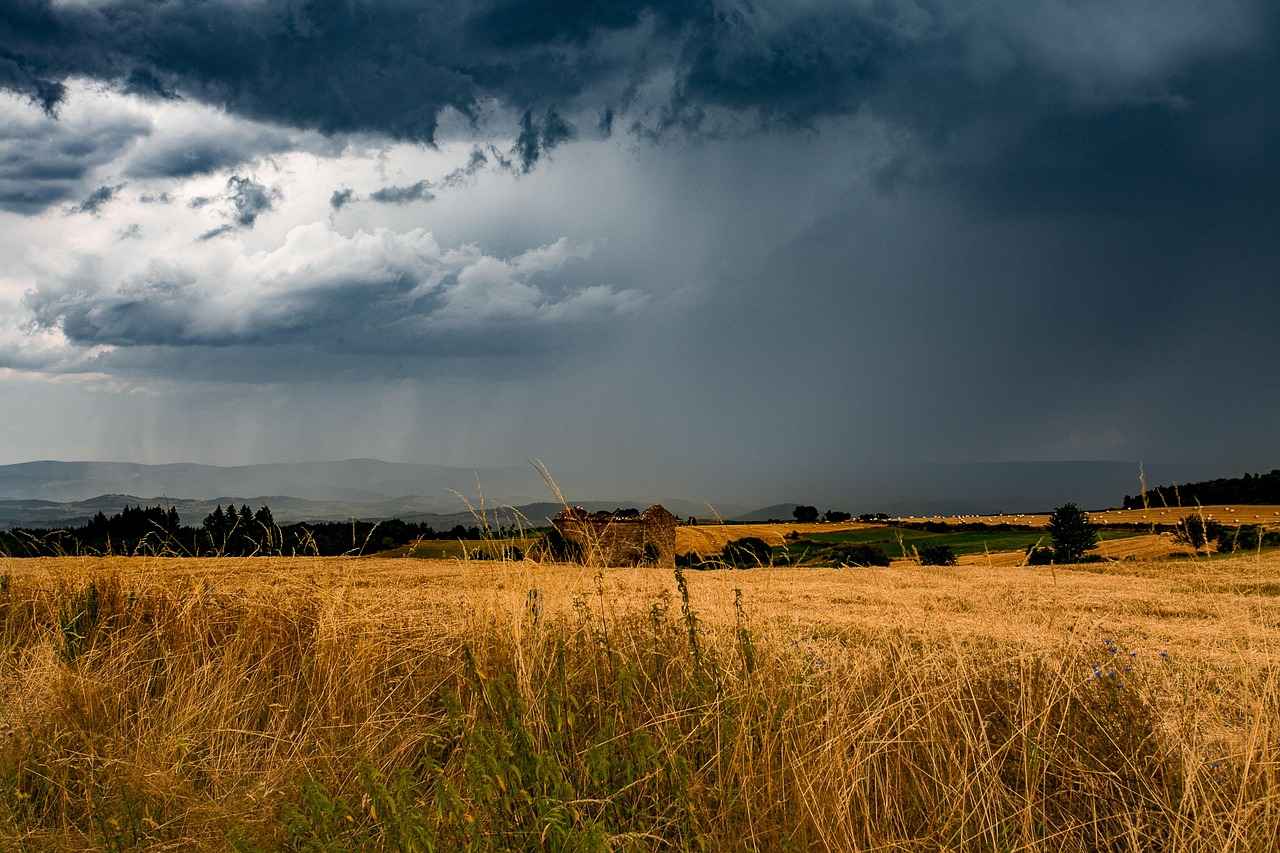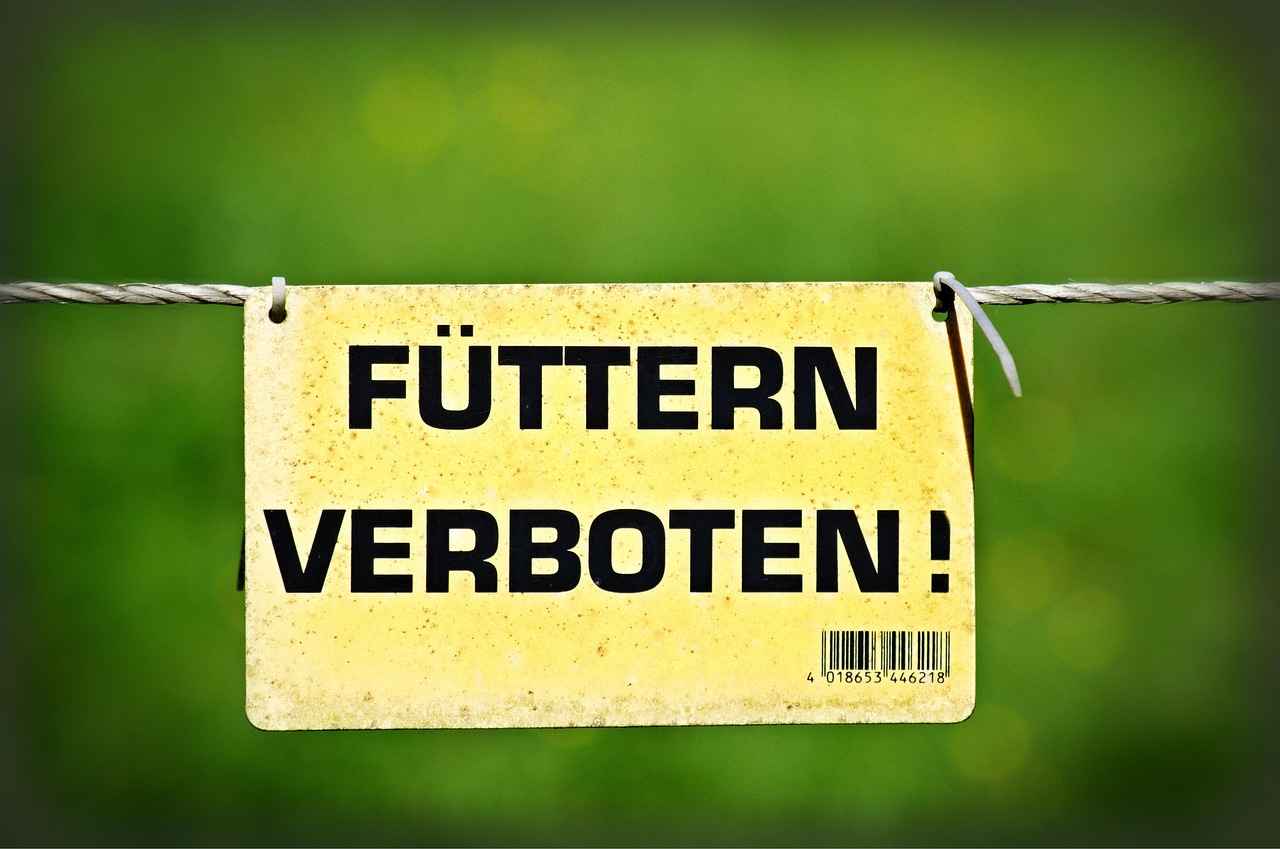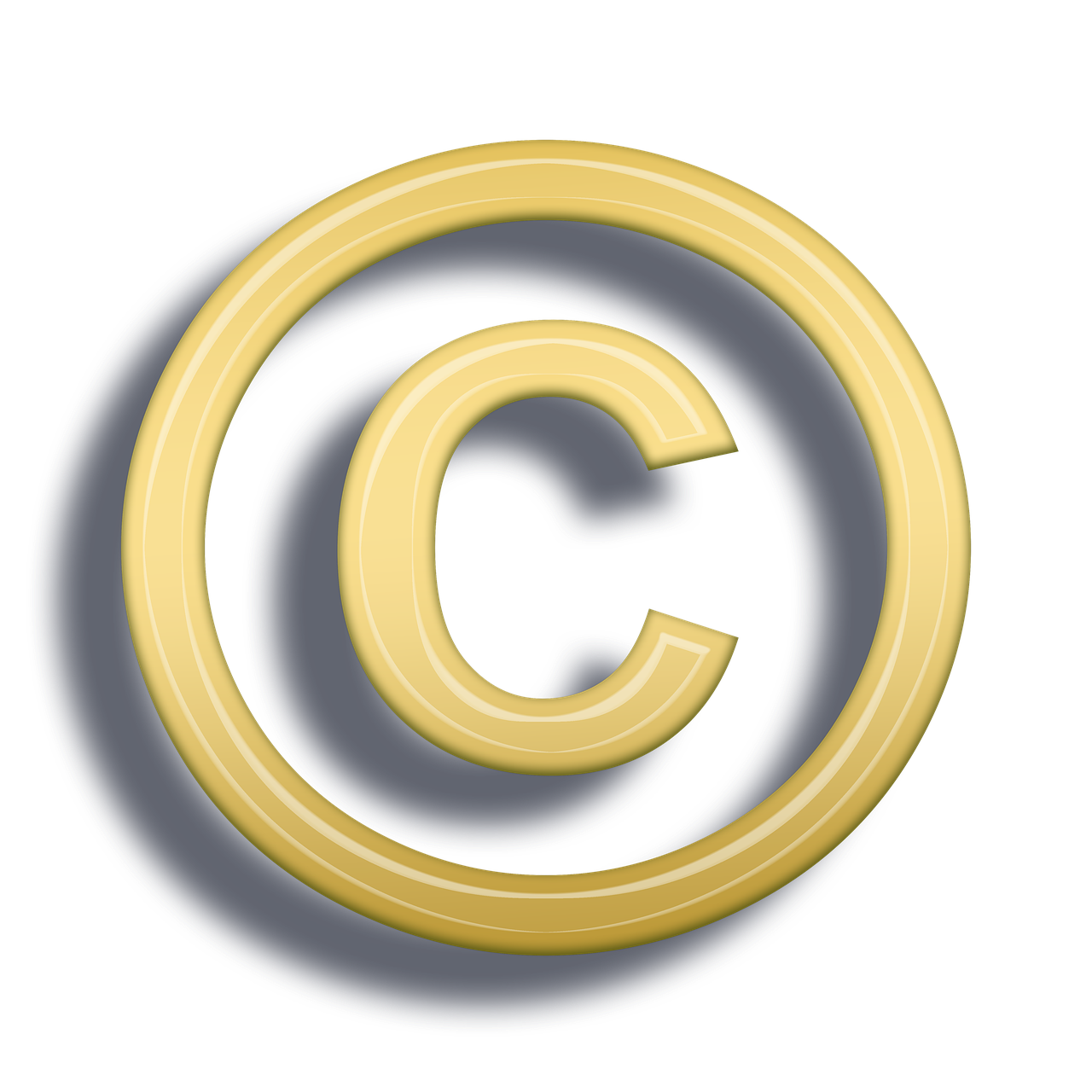This article delves into the implications of using 123 Movies, a widely known streaming platform, and the potential legal ramifications associated with copyright infringement. It aims to educate users about their rights and responsibilities when accessing content online.
Copyright law is a legal framework that protects the rights of creators by prohibiting unauthorized use of their work. This law serves to encourage creativity by ensuring that artists, writers, and producers can benefit from their creations. In the digital age, copyright applies to a wide range of content including films, music, and literature. Users should be aware that streaming content without permission from the copyright holder constitutes infringement, which can lead to legal action.
Not all streaming sites operate within the bounds of the law. 123 Movies, while popular, is often categorized as an illegal streaming service due to its distribution of copyrighted content without authorization. The legality of such sites hinges on various factors, including the jurisdiction and the specific content being streamed. Users must understand that accessing content through these platforms can expose them to legal liability.
Utilizing 123 Movies can lead to several risks, including potential legal action and exposure to malware. Users may inadvertently download harmful software while trying to access content. Additionally, internet service providers (ISPs) can monitor user activity and may take action against individuals who frequently access illegal streaming sites. Understanding these risks is crucial for anyone considering using such platforms.
If users are caught using illegal streaming services like 123 Movies, they may face severe legal repercussions. These can range from hefty fines to criminal charges, depending on the severity of the infringement. Legal actions can also result in civil lawsuits from copyright holders seeking damages. It is essential for users to comprehend the potential consequences of their online activities.
Copyright holders employ various methods to track illegal streaming activities. Technologies such as digital fingerprinting and monitoring software are used to identify unauthorized use of content. Additionally, copyright enforcement agencies may collaborate with ISPs to monitor and report on illegal streaming patterns. This proactive approach aims to protect the rights of creators and deter piracy.
Receiving a copyright notice can be a daunting experience. Users are advised to take the notice seriously and respond promptly. It is crucial to review the notice details and seek legal counsel if necessary. Options may include ceasing the use of the infringing site, negotiating with the copyright holder, or exploring legal defenses. Understanding one’s rights in this situation can help mitigate potential consequences.
For those seeking legal streaming options, numerous alternatives exist that offer similar content without the associated risks. Platforms such as Netflix, Amazon Prime Video, and Hulu provide extensive libraries of films and television shows, often with subscription plans that cater to various budgets. Utilizing these legitimate services not only supports content creators but also enhances the viewing experience without legal concerns.
Copyright infringement has far-reaching effects on the entertainment industry. Piracy undermines the revenue of creators, affecting their ability to produce new content. This loss of income can lead to reduced investment in future projects, ultimately impacting the diversity and quality of available media. Understanding the implications of piracy is vital for fostering a sustainable creative ecosystem.
Fair use allows for limited use of copyrighted material under specific conditions, such as for commentary, criticism, or educational purposes. However, the boundaries of fair use can be ambiguous, leading to misconceptions. Users should be cautious and informed about what constitutes fair use to avoid unintentional infringement.
Many users turn to Virtual Private Networks (VPNs) for privacy while streaming. While VPNs can help mask user identity and provide a layer of security, they do not offer legal protection against copyright infringement. Users should be aware that using a VPN does not absolve them of responsibility for accessing illegal content.
As technology continues to evolve, so do the methods of copyright enforcement. The future may see more sophisticated tracking technologies and stricter regulations on streaming services. Users should remain informed about changes in copyright laws and the implications for their viewing habits.
With a thorough understanding of copyright laws and the risks associated with using services like 123 Movies, users can make informed decisions about their streaming practices and support legal content distribution.

Understanding Copyright Law
Copyright law is a vital aspect of intellectual property rights, designed to protect the creative works of individuals and organizations. It grants exclusive rights to creators, allowing them to control how their work is used, distributed, and reproduced. This protection extends to a wide range of creative expressions, including literature, music, film, software, and digital content. In this section, we will explore the fundamental principles of copyright law, its significance, and its application in the digital age.
What is Copyright?
Copyright is a legal framework that provides creators with the exclusive right to their original works. This means that only the copyright holder can authorize the reproduction, distribution, or display of their work. The primary purpose of copyright law is to encourage creativity and innovation by ensuring that creators can benefit financially from their efforts.
Duration of Copyright Protection
The duration of copyright protection varies by jurisdiction but generally lasts for the life of the creator plus a certain number of years (often 70 years in many countries). For works created by corporations, copyright may last for a set period from the date of publication. Once the copyright expires, the work enters the public domain, allowing anyone to use it without permission.
Copyright and Digital Content
In the digital era, copyright law faces unique challenges. The ease of copying and distributing digital content has led to widespread copyright infringement. As a result, copyright holders must be vigilant in protecting their rights. This includes monitoring the internet for unauthorized use of their work and taking legal action against infringers.
Fair Use Doctrine
One important aspect of copyright law is the fair use doctrine, which allows limited use of copyrighted material without permission under specific circumstances. This includes criticism, comment, news reporting, teaching, scholarship, or research. However, determining what constitutes fair use can be complex and often requires a case-by-case analysis.
International Copyright Treaties
Copyright law is not uniform worldwide. Various international treaties, such as the Berne Convention and the World Intellectual Property Organization (WIPO) Copyright Treaty, aim to harmonize copyright protections across borders. These treaties ensure that creators can enforce their rights internationally, although enforcement can vary significantly by country.
The Importance of Copyright for Creators
For creators, copyright is essential for protecting their intellectual property and ensuring they receive recognition and compensation for their work. Without copyright protection, creators would be vulnerable to unauthorized use and exploitation of their creations, undermining their ability to profit from their efforts.
Conclusion
Understanding copyright law is crucial for anyone involved in the creation or distribution of content, especially in the digital realm. By respecting copyright laws and recognizing the rights of creators, individuals and businesses can foster a more equitable and sustainable creative environment.

The Legal Status of Streaming Sites
Understanding the Legal Framework of Streaming Sites
In recent years, the rise of streaming services has transformed the way we consume media. However, not all streaming platforms operate within the bounds of the law. This article delves into the legal status of streaming sites like 123 Movies, examining the factors that determine their legality and the implications for users.
What Defines a Legal Streaming Site?
To understand the legal landscape of streaming sites, it’s essential to recognize what constitutes a legal platform. A legal streaming site typically has licensing agreements with content creators and distributors, allowing them to offer movies and shows without infringing on copyright laws. Conversely, sites that host or stream copyrighted content without permission are operating illegally.
Factors Influencing Legitimacy
- Licensing Agreements: Legal streaming sites usually have formal agreements with copyright holders.
- Content Ownership: Sites that produce their own content or have acquired rights legally are more likely to be legitimate.
- Geographic Restrictions: Laws vary by country, affecting the legality of streaming certain content based on the user’s location.
User Liability: What Are the Risks?
Users of illegal streaming sites like 123 Movies face several risks. Even if the site itself is illegal, users can be held liable for accessing copyrighted material without authorization. This liability can result in legal consequences, including hefty fines and potential criminal charges. Additionally, users may expose themselves to malware and other security threats commonly associated with dubious streaming platforms.
How Are Illegal Streaming Sites Identified?
Copyright holders employ various methods to monitor streaming sites. These include:
- Digital Fingerprinting: This technology helps identify copyrighted material being streamed online.
- IP Tracking: Copyright enforcement agencies can track IP addresses of users accessing illegal content.
- Collaboration with Internet Service Providers: ISPs may be required to assist in identifying users who access illegal sites.
The Role of User Awareness
It is crucial for users to be aware of the legal implications of their streaming choices. Understanding the difference between legal and illegal streaming services empowers users to make informed decisions. By opting for legal platforms, users not only support content creators but also protect themselves from potential legal repercussions.
Conclusion: Staying Informed in the Streaming Era
As the streaming landscape continues to evolve, staying informed about the legal status of various platforms is essential. Users should prioritize legal services to enjoy content safely and ethically. By doing so, they contribute to a fair and sustainable entertainment industry.

Risks of Using 123 Movies
Using websites like 123 Movies can seem like an appealing option for streaming movies and TV shows for free. However, it is essential to understand the various risks associated with accessing such platforms. This section will explore these risks, emphasizing the potential legal ramifications and cybersecurity threats that users may face.
- Legal Consequences: One of the most significant risks of using 123 Movies is the potential for legal action. Many of the films and shows available on these sites are protected by copyright laws. Accessing or distributing copyrighted content without permission can lead to serious legal repercussions, including hefty fines and even possible jail time. Copyright holders actively monitor illegal streaming sites and may pursue legal action against users who violate their rights.
- Malware and Viruses: Another major concern when using 123 Movies is the risk of encountering malware or viruses. These sites often host ads and pop-ups that can lead users to malicious downloads. Clicking on these ads can compromise your device’s security, leading to data theft or system damage. Users may unknowingly download harmful software that can steal personal information or disrupt normal device operations.
- Privacy Issues: When accessing illegal streaming sites, users may also expose their personal information to third parties. Many of these sites do not have robust security measures in place, making it easier for hackers to access user data. Without proper encryption and security protocols, your browsing history, personal details, and payment information can be at risk.
- Unreliable Content: The quality of content on 123 Movies can be inconsistent. Users may encounter broken links, poor video quality, or missing episodes. This unreliability can lead to frustration and a less enjoyable viewing experience. Moreover, the lack of customer support on such platforms means that users have nowhere to turn for assistance.
- ISP Monitoring: Internet Service Providers (ISPs) are increasingly monitoring user activity to enforce copyright laws. If you frequently visit illegal streaming sites, your ISP may flag your account, potentially leading to throttling of your internet speed or even termination of your service. This monitoring can also result in legal notices being sent to your home address.
In summary, while 123 Movies may offer a tempting array of free content, the risks associated with using such platforms far outweigh the benefits. Users should consider these factors seriously and explore legitimate streaming options to avoid potential legal issues and cybersecurity threats. By understanding the implications of accessing copyrighted content without permission, individuals can make more informed decisions about their viewing habits and protect themselves from unnecessary risks.

What Happens If You Get Caught? Legal Consequences Explained
Engaging with illegal streaming services like 123 Movies can seem tempting due to the vast array of content available at no cost. However, users must understand the significant legal implications of such actions. This section will delve into the potential legal consequences of using these services, emphasizing the risks involved.
When individuals use illegal streaming platforms, they unknowingly expose themselves to a range of legal repercussions. One of the most common consequences is the imposition of fines. Depending on the jurisdiction, these fines can vary significantly. For instance, in some cases, users may face fines that range from hundreds to thousands of dollars, depending on the severity of the infringement and whether it is a repeated offense.
In addition to fines, users may also confront criminal charges. While many may believe that simply watching pirated content is harmless, the law often views it as a serious offense. In some regions, repeated violations can lead to felony charges, resulting in harsher penalties, including possible jail time. This can have a long-lasting impact on an individual’s life, affecting employment opportunities and personal freedom.
Furthermore, copyright holders actively monitor illegal streaming services to protect their intellectual property. They employ sophisticated technology and legal strategies to track users who access their content without permission. This monitoring can lead to cease-and-desist letters or even lawsuits against individuals who are identified as users of these platforms. Such legal actions can be daunting and often result in costly legal fees, even if the user ultimately prevails in court.
Users may also face internet service provider (ISP) notifications. ISPs often receive notices from copyright holders about individuals engaging in illegal streaming. This can lead to warnings, and in some cases, ISPs may suspend or terminate service for repeat offenders. This not only disrupts access to the internet but can also complicate future service agreements.
It’s essential for users to recognize that the consequences of illegal streaming extend beyond immediate legal issues. The social stigma associated with being caught can also affect personal relationships and reputations. As the landscape of digital content continues to evolve, understanding the ramifications of copyright infringement becomes increasingly critical.
In conclusion, the legal consequences of using illegal streaming services like 123 Movies are severe and multifaceted. From hefty fines to potential jail time, the risks far outweigh the benefits. Users are encouraged to seek legal alternatives for streaming content to avoid these penalties and support the creators of the media they enjoy.

How Copyright Infringement is Detected
Copyright infringement is a significant concern in the digital age, particularly with the rise of streaming services. As more people turn to platforms like 123 Movies, copyright holders are increasingly vigilant in protecting their intellectual property. This section focuses on the various methods and technologies employed to detect illegal streaming activities.
Copyright holders utilize advanced technological tools to monitor online activity. One of the most common methods is the use of digital fingerprinting. This technology allows companies to create unique identifiers for their content, enabling them to track its distribution across various platforms. When a user streams content, the fingerprint is matched against a database, revealing unauthorized use.
Another prevalent method is IP address tracking. Copyright holders can identify the IP addresses of users accessing their content illegally. By collaborating with internet service providers (ISPs), they can trace the activity back to individual users. This information is often used to issue cease and desist notices or to pursue legal action against infringers.
Copyright enforcement agencies also employ web scraping techniques to gather data from various streaming sites. This involves automated bots that scan websites for copyrighted material. The collected data helps in identifying trends in illegal streaming and pinpointing specific platforms that are facilitating copyright infringement.
In more serious cases, copyright holders may collaborate with law enforcement agencies to tackle large-scale piracy operations. This partnership can lead to investigations and raids on websites that host or promote illegal streaming services. Such actions can result in the shutdown of these sites and the prosecution of their operators.
In addition to technological measures, copyright holders often rely on user reporting to identify illegal streaming. Many companies encourage users to report suspicious activities or unauthorized content. This community vigilance plays a crucial role in maintaining the integrity of digital content and protecting the rights of creators.
Copyright infringement detection is also supported by a robust legal framework. Laws such as the Digital Millennium Copyright Act (DMCA) in the United States provide copyright holders with the means to protect their work. Under this act, copyright owners can file takedown notices against infringing content, forcing platforms to remove unauthorized materials swiftly.
Despite these methods, detecting copyright infringement remains a challenging endeavor. The anonymity provided by VPNs (Virtual Private Networks) complicates IP address tracking, making it difficult for copyright holders to identify infringers. Moreover, the rapid evolution of technology means that enforcement methods must continuously adapt to stay effective.
In conclusion, the detection of copyright infringement involves a multi-faceted approach that combines technology, legal frameworks, and community involvement. As the landscape of digital content continues to evolve, copyright holders will need to innovate their strategies to combat illegal streaming effectively.

What to Do If You Receive a Copyright Notice
Receiving a copyright notice can be a distressing experience for many individuals. It often raises questions about legal responsibilities and the potential repercussions of copyright infringement. In this section, we will provide a comprehensive guide on how to respond effectively to a copyright notice, outlining essential steps and available legal options for users.
First and foremost, it is crucial to read the notice carefully. Copyright notices typically include details about the alleged infringement, such as the specific content in question and the rights holder’s information. Understanding the specifics of the notice will help you gauge the severity of the situation and the necessary actions you should take.
- Do Not Panic: While receiving a copyright notice can be alarming, it is essential to remain calm. Many individuals receive notices without facing severe consequences.
- Verify the Claim: Research the legitimacy of the claim. Sometimes, notices can be sent in error, or the copyright holder may not have the rights they claim.
- Consult Legal Advice: Seeking professional legal counsel is often a wise step. An attorney specializing in copyright law can provide personalized advice based on your situation. They can help you understand your rights and options.
If the copyright notice is legitimate, you may have several options:
- Cease Infringing Activity: If you are still accessing or sharing the infringing content, it is best to stop immediately to mitigate potential legal repercussions.
- Respond to the Notice: In some cases, you may need to respond to the copyright holder or their representative. This response can acknowledge receipt of the notice and outline your intended actions.
- Negotiate a Settlement: If applicable, you might consider negotiating with the copyright holder for a settlement. This could involve paying a fee or agreeing to cease certain activities.
Another critical aspect to consider is whether you have a valid defense under fair use provisions. Fair use allows for limited use of copyrighted material without permission, but this is a complex area of law that often requires professional interpretation.
Lastly, keep all documentation related to the copyright notice. This includes the notice itself, any correspondence with the copyright holder, and records of your actions in response. This information may be valuable if the situation escalates or if further legal action is taken.
In conclusion, receiving a copyright notice can be daunting, but understanding your rights and options can help you navigate the situation with confidence. Always prioritize obtaining legal advice to ensure you are making informed decisions regarding your response.

Alternatives to 123 Movies
As the demand for online streaming continues to rise, many viewers are looking for safe and legal alternatives to platforms like 123 Movies. These alternatives not only provide access to a vast array of content but also ensure that users remain within the bounds of the law while enjoying their favorite shows and movies. This section explores several legitimate streaming platforms that offer similar content without the associated risks.
- Netflix: One of the most popular streaming services globally, Netflix offers a diverse library of movies, TV shows, and original content. With subscription plans that cater to different budgets, users can enjoy ad-free streaming on multiple devices. Netflix frequently updates its content, ensuring that subscribers have access to the latest releases.
- Amazon Prime Video: Included with an Amazon Prime membership, this platform provides a rich selection of films and series, including exclusive Amazon Originals. Users can rent or purchase titles that are not included in the subscription, making it a versatile option for varied viewing preferences.
- Hulu: Known for its extensive library of TV shows, Hulu offers both current episodes from popular networks and classic series. With different subscription tiers, including an ad-supported option, Hulu caters to a wide range of audience preferences.
- Disney+: For fans of Disney, Marvel, Star Wars, and Pixar, Disney+ is the go-to streaming service. It features a vast collection of family-friendly content, including classic animated films and new releases. The platform is particularly appealing to families looking for wholesome entertainment.
- HBO Max: With a rich catalog of films and series, including HBO’s original programming, HBO Max is a premium streaming service that offers something for everyone. From blockbuster movies to critically acclaimed series, subscribers can enjoy high-quality content across various genres.
- Apple TV+: Apple’s streaming service offers a growing library of original content, including films and series that have garnered critical acclaim. With a focus on high-quality productions, Apple TV+ is an excellent choice for those looking for exclusive content.
In addition to these major platforms, there are also free streaming options available, such as:
- Tubi: This free streaming service offers a wide range of movies and TV shows without requiring a subscription. Supported by ads, Tubi provides an extensive collection of content across various genres.
- Crackle: Owned by Sony, Crackle offers a selection of films and television series for free. Users can enjoy classic films and popular shows, all supported by advertisements.
- Pluto TV: Combining live TV and on-demand content, Pluto TV offers a unique viewing experience. Users can access a variety of channels and shows without any subscription fees.
By choosing these legal alternatives, users can enjoy their favorite content without the risks associated with illegal streaming sites like 123 Movies. Not only do these platforms provide a safe viewing environment, but they also support the creators and industries behind the content, ensuring that quality programming continues to thrive.

Impact of Copyright Infringement on Content Creators
Copyright infringement is a significant issue that extends beyond legal ramifications; it profoundly affects the livelihoods of content creators. The rise of digital piracy has created a complex landscape where artists, writers, filmmakers, and musicians find their work exploited without compensation. This section will explore the various ways in which copyright infringement impacts the creative industry and the individuals behind the content.
Economic Consequences
One of the most immediate effects of copyright infringement is the economic loss suffered by creators. When their work is pirated, artists often see a direct decline in sales and revenue. For instance, a film that is illegally streamed can lose millions in box office revenue, which directly impacts not only the filmmakers but also the entire production crew, actors, and other stakeholders involved in the project. According to industry reports, piracy can reduce the potential earnings of a film by up to 50%.
Impact on Creativity and Innovation
When creators are unable to earn a fair return on their work, it stifles creativity and innovation. Many artists rely on the income generated from their previous projects to fund new ones. If piracy continues to undermine their financial stability, fewer creators will be willing to take risks on new ideas or invest in high-quality productions. This stagnation can lead to a homogenization of content, where creators opt for safer, more commercially viable projects rather than pushing artistic boundaries.
Emotional and Psychological Effects
The emotional toll of copyright infringement cannot be overstated. Many creators pour their heart and soul into their work, and seeing it misused or undervalued can lead to feelings of frustration, anger, and helplessness. This emotional burden can affect their mental health, leading to decreased productivity and a reluctance to engage with their audience. The fear of piracy often makes creators hesitant to share their work, further isolating them from their fan base.
Legal Challenges and Resources
Dealing with copyright infringement often requires significant legal resources. Many creators do not have the means to pursue legal action against infringers, which can lead to a sense of powerlessness. While there are organizations that offer support, the process of enforcing copyright can be daunting and expensive. This legal complexity often deters creators from taking action, allowing piracy to persist unchallenged.
Community and Industry Response
The creative community has begun to rally against copyright infringement through various initiatives aimed at raising awareness and advocating for stronger protections. Many organizations are working to educate both creators and consumers about the importance of respecting intellectual property rights. By fostering a culture of respect for creators, the industry can work towards mitigating the effects of piracy.
Conclusion
In conclusion, copyright infringement poses a multi-faceted threat to content creators, affecting their economic stability, emotional well-being, and the overall health of the creative industry. As digital consumption continues to rise, it is crucial for both creators and consumers to understand the importance of supporting original content and respecting the rights of those who create it. By fostering a culture of appreciation for creative work, we can help ensure a vibrant and diverse artistic landscape for future generations.

Understanding Fair Use and Its Limitations
Understanding fair use is crucial for anyone who engages with copyrighted material, especially in the digital age. Fair use allows for the limited use of copyrighted content without permission from the copyright holder, but it is often misunderstood. This section aims to clarify what constitutes fair use, the legal framework surrounding it, and common misconceptions that can lead to unintentional infringement.
Fair use is governed by the Copyright Act of 1976 in the United States, which outlines four key factors to determine whether a use qualifies as fair:
- The purpose and character of the use: Non-commercial, educational, or transformative uses are more likely to be considered fair use. For instance, using a clip from a movie for a critique or commentary may fall under this category.
- The nature of the copyrighted work: Using factual works is generally more permissible than using creative works. For example, quoting a scientific study is more likely to be fair use than using a song.
- The amount and substantiality of the portion used: Using a small excerpt of a work may be fair use, especially if it does not capture the ‘heart’ of the work. However, using a significant portion could negate a fair use claim.
- The effect of the use on the market: If the use negatively impacts the market for the original work, it is less likely to be considered fair use. For example, streaming a movie for free could harm its sales.
Despite these guidelines, misconceptions about fair use abound. One common myth is that using copyrighted material for educational purposes is always fair use. While educational use can strengthen a fair use argument, it is not a blanket exemption. Another misconception is that crediting the original creator automatically makes the use fair. This is not true; fair use is determined by the factors mentioned above, not by attribution alone.
Additionally, many people believe that fair use applies universally across all countries. In reality, fair use is a concept unique to U.S. law, while other countries have their own copyright exceptions, which may not align with the U.S. framework.
Understanding these nuances is essential for anyone who wishes to use copyrighted material responsibly. Engaging with copyright law in a thoughtful manner not only protects individuals from potential legal repercussions but also respects the rights of creators. Therefore, it is advisable to consult legal experts or resources when in doubt about fair use, especially in complex situations.
In conclusion, while fair use provides a valuable framework for using copyrighted material, it is imperative to navigate its limitations carefully. Awareness of the four factors and common misconceptions can help individuals make informed decisions and avoid unintentional copyright infringement.

VPNs and Their Role in Streaming
Many users are increasingly turning to Virtual Private Networks (VPNs) as a means to enhance their privacy while streaming content online. As streaming platforms become more popular, concerns regarding user privacy and copyright infringement have escalated. This section delves into the effectiveness of VPNs in safeguarding user identity and examines whether they provide any legal cover against copyright infringement.
One of the primary functions of a VPN is to create a secure, encrypted connection between the user’s device and the internet. This encryption masks the user’s IP address, making it difficult for third parties, including internet service providers (ISPs) and copyright enforcement agencies, to track online activities. By routing internet traffic through a remote server, VPNs can effectively shield users from being easily identified while accessing streaming sites like 123 Movies.
However, it is important to note that while VPNs enhance privacy, they do not necessarily provide complete immunity from legal repercussions related to copyright infringement. Users should understand that engaging in illegal streaming, even while using a VPN, can still lead to potential legal consequences. Copyright holders employ sophisticated technologies to detect unauthorized streaming, and some VPNs may not be able to fully obfuscate user activities from advanced monitoring systems.
Additionally, the legal landscape surrounding VPN usage varies by country. In some jurisdictions, using a VPN to access pirated content may be considered illegal, while in others, it may be permissible. Therefore, users must be aware of the laws governing VPN usage and copyright infringement in their respective locations.
Moreover, not all VPNs are created equal. Some may log user activity, which could potentially expose users to legal risks if the VPN provider is compelled to share data with authorities. It is crucial for users to choose reputable VPN services that have a strict no-logs policy and are transparent about their data handling practices.
In conclusion, while VPNs can provide a layer of privacy for users streaming content online, they are not a foolproof solution against copyright infringement. Users should remain informed about the legal implications of their streaming activities and consider alternative legal streaming options to avoid potential risks. By understanding the limitations of VPNs and the associated legal landscape, users can make more informed decisions regarding their online viewing habits.

The Future of Streaming and Copyright Enforcement
As technology continues to advance at a rapid pace, the landscape of streaming services and copyright enforcement is undergoing significant transformations. This section delves into the emerging trends and potential changes that could shape the future of digital content consumption and copyright laws.
Adapting to Technological AdvancementsWith the rise of artificial intelligence and machine learning, copyright enforcement methods are becoming increasingly sophisticated. Companies are investing in advanced algorithms that can detect unauthorized content more effectively. These algorithms analyze user behavior and streaming patterns to identify potential copyright infringement in real-time. As a result, copyright holders may have the ability to take swift action against violators, significantly reducing the window for illegal streaming activities.
The Role of Blockchain TechnologyBlockchain technology is poised to revolutionize the way copyright is managed. By providing a decentralized and transparent ledger, blockchain can ensure that creators receive fair compensation for their work. Smart contracts could automate licensing agreements, making it easier for users to access content legally while protecting the rights of creators. This innovation could create a more equitable landscape for both content providers and consumers, potentially reducing the prevalence of piracy.
Strengthening Legal FrameworksAs streaming services continue to grow in popularity, governments around the world are likely to revisit and strengthen copyright laws. This could include harsher penalties for copyright infringement and increased funding for enforcement agencies. Lawmakers may also collaborate internationally to address the cross-border nature of online piracy, creating a unified approach to combat copyright violations.
Consumer Education and AwarenessIn addition to legal measures, consumer education will play a crucial role in shaping the future of streaming and copyright enforcement. As users become more informed about the implications of using illegal streaming services, they may be more inclined to choose legitimate options. Educational campaigns highlighting the benefits of supporting creators and the risks associated with piracy could foster a culture of respect for intellectual property.
The Rise of Subscription-Based ModelsThe growing popularity of subscription-based streaming services indicates a shift in consumer behavior. With platforms like Netflix, Disney+, and Amazon Prime offering vast libraries of content for a monthly fee, users are increasingly recognizing the value of legal access to entertainment. This trend may lead to a decline in illegal streaming as consumers opt for affordable, legitimate alternatives.
Conclusion: A Dynamic LandscapeThe future of streaming and copyright enforcement is likely to be characterized by a dynamic interplay between technology, law, and consumer behavior. As advancements continue to emerge, both content creators and consumers will need to adapt to this evolving landscape. By fostering a culture of respect for copyright and embracing innovative solutions, the industry can work towards a sustainable future that benefits all stakeholders involved.

Conclusion: Navigating the Streaming Landscape Responsibly
In today’s digital age, the way we consume media has drastically changed. With the rise of streaming services, platforms like 123 Movies have gained immense popularity. However, the legal ramifications of using such sites can be quite serious. Understanding copyright laws is crucial for users who want to enjoy their favorite content without running into legal trouble. This article will delve into the importance of being informed about copyright and how it affects viewing habits.
Copyright laws are designed to protect the rights of creators and ensure that they receive recognition and compensation for their work. These laws apply to various forms of media, including films, music, and literature. When users access content through unauthorized platforms like 123 Movies, they may be infringing on these rights. It’s essential to recognize that copyright infringement can lead to legal consequences, including fines and potential criminal charges.
Utilizing services like 123 Movies can expose users to several risks. Apart from the legal implications, there are also cybersecurity threats to consider. Many unauthorized streaming sites are riddled with malware and other harmful software that can compromise personal information. Users must weigh these risks against the desire for free content and consider supporting legal alternatives.
If caught using illegal streaming services, individuals may face severe penalties. Copyright holders actively monitor unauthorized use of their content, and users could receive copyright notices or face lawsuits. The repercussions can range from hefty fines to more serious legal actions, depending on the extent of the infringement. Being aware of these potential consequences is vital for making informed decisions.
For those seeking to enjoy movies and shows legally, numerous alternatives exist. Platforms like Netflix, Hulu, and Amazon Prime Video offer vast libraries of content while ensuring that creators are compensated for their work. Subscribing to these services not only provides access to high-quality content but also supports the industry and its artists.
Copyright infringement has a profound impact on the livelihoods of content creators. When users choose to access pirated content, it diminishes the revenue that artists, filmmakers, and other professionals rely on. This loss can stifle creativity and limit the production of new content, ultimately affecting the quality and variety of media available to consumers.
Fair use is a complex aspect of copyright law that allows for limited use of copyrighted material under specific conditions. However, many misconceptions surround this concept. Users should educate themselves on what constitutes fair use and understand that it does not provide blanket protection for all types of content consumption. Knowing these limitations can help individuals navigate the streaming landscape more responsibly.
Many individuals resort to using Virtual Private Networks (VPNs) to mask their online activities while streaming. While VPNs can enhance privacy and security, they do not offer legal protection against copyright infringement. Users should be cautious and recognize that using a VPN does not absolve them of responsibility if they engage in illegal streaming.
As technology advances, so do the methods of copyright enforcement. The streaming landscape is continually evolving, and both users and creators must adapt. Understanding the trends in copyright law and the implications for streaming services is essential for making informed choices about content consumption.
With a thorough understanding of copyright laws and the associated risks of using services like 123 Movies, users can make informed decisions about their viewing habits. Supporting legal content distribution not only protects individuals from potential legal issues but also ensures that creators receive the recognition and compensation they deserve.
Frequently Asked Questions
- What is copyright infringement?
Copyright infringement occurs when someone uses a copyrighted work without permission from the creator. This can include streaming movies or shows from sites like 123 Movies without authorization, which is illegal.
- Can I get in trouble for using 123 Movies?
Yes, using 123 Movies can lead to legal consequences. Users might face fines or even criminal charges for accessing copyrighted content illegally. It’s essential to understand the risks involved.
- How do copyright holders detect illegal streaming?
Copyright holders use various technologies and methods to track illegal streaming activities. This can include monitoring IP addresses and employing digital fingerprinting techniques to identify unauthorized use of their content.
- What should I do if I receive a copyright notice?
If you receive a copyright notice, it’s crucial to take it seriously. You should stop using the service immediately and consider seeking legal advice to understand your options and how to respond appropriately.
- Are there legal alternatives to 123 Movies?
Absolutely! There are many legitimate streaming services available, such as Netflix, Hulu, and Amazon Prime Video, which offer a wide range of content without the associated legal risks of piracy.














